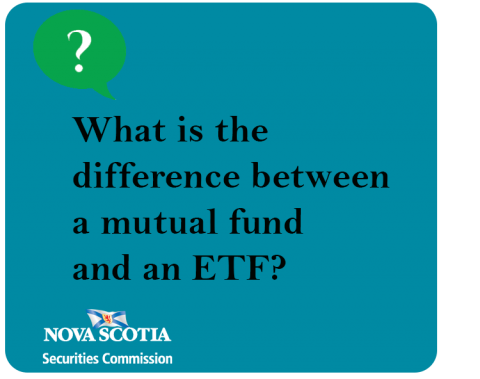Submitted by nsscadmin on

There are a number of similarities and differences when it comes to mutual funds and exchange-traded funds (ETFs). The key similarity is of course that both are a collection of securities packaged together as one investment to give investors an easier and more affordable way to create a diversified portfolio. Both mutual funds and ETFs are overseen by a portfolio manager, but may differ in how they are managed due to their makeup.
One major difference between mutual funds and ETFS is how that are traded. An ETF, as the name suggests, is traded on an exchange. It can be traded throughout the day at its current price, which also fluctuates throughout the day and is listed on an exchange like the TSX. The value of the securities held by a mutual fund can change throughout the day, but it can only be bought or sold at its end of day net asset value. Most mutual fund’s disclose their policy about how and when they calculate the net asset value.
When a mutual fund is bought the purchaser is issued new shares or units and added to the pool of existing fund investors. Since ETFs are traded on exchanges they are bought and sold through a broker. A mutual fund sets its own minimum initial investment which must be met to buy into the fund. This minimum amount can be found in the prospectus or fund facts sheet. ETFs do not have a minimum initial investment like a mutual fund. To invest in an ETF an investor must pay enough to cover the purchase price of the amount of shares they want along with any trading costs. For example, if the ETF they want to purchase was selling for $5 per share and trades cost $4.99, to purchase 20 shares they would need $100 + $4.99 for a total of $104.99.
Most ETFs track an index so they typically required less management. Because they require less management they often have a lower operating expense than a mutual fund. ETFs also have no loads, while some mutual funds do.
The differences between mutual funds and ETFs can mean that one may be a better investment for you. When deciding between a mutual fund and an ETF always make sure you do your research to see how each one fits into your investment goals and if they are suitable for you based on your risk tolerance, investment horizon, portfolio makeup and investing values.
